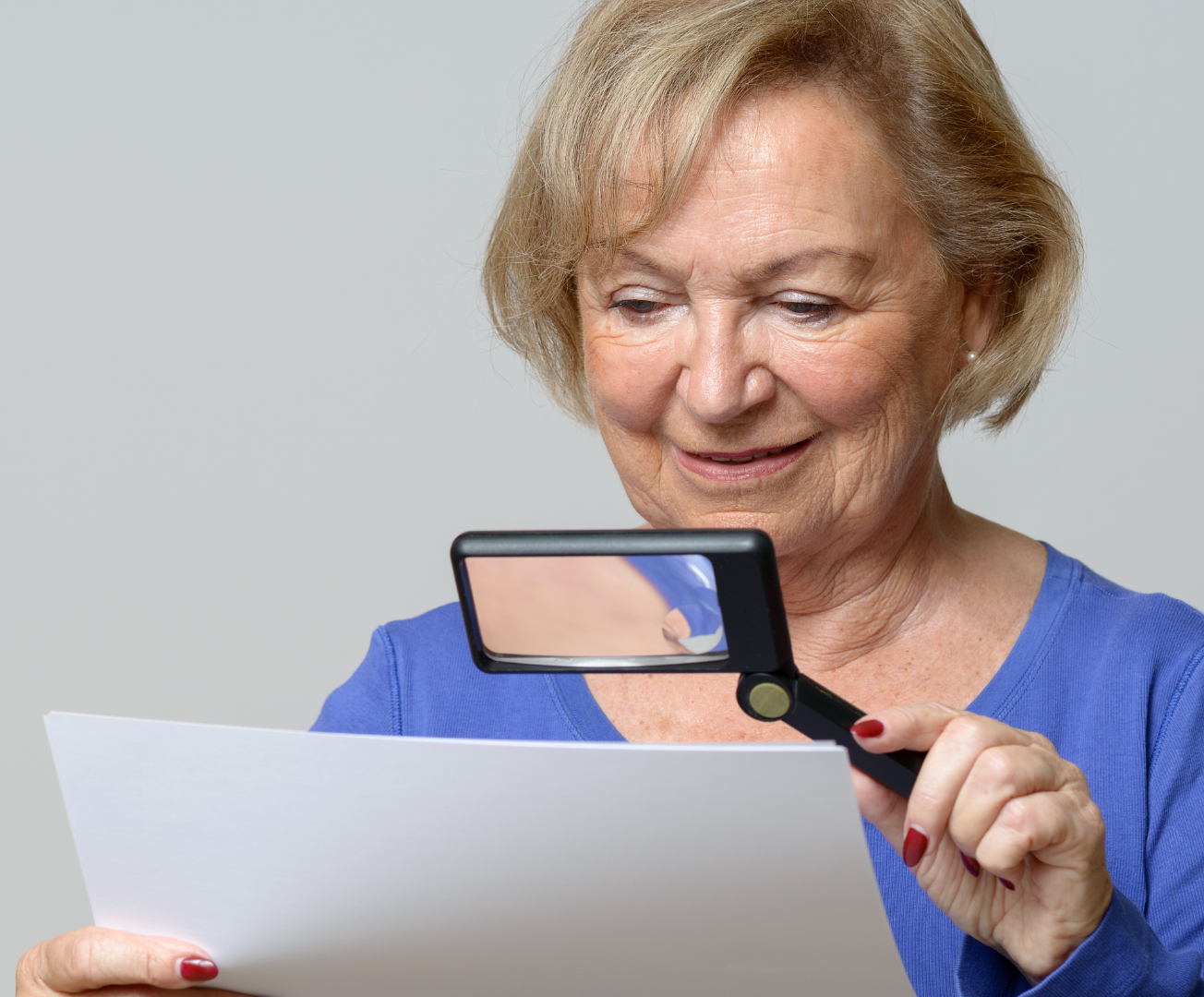
Everyday changes to make living with AMD better
According to the Royal National Institute of Blind People (RNIB), 48% of all registered blind people state age-related macular degeneration (AMD) as the main cause of their sight loss. For those affected, everyday life can become more difficult as the condition progresses.
The same report estimates more than four million people are already experiencing symptoms of AMD, with this number set to grow by 25% up to 2032. As a result, more people and their loved ones will be looking for ways to overcome the everyday challenges this condition presents and maintain their independence.
Alongside taking steps to improve their lifestyle and slow down the progression of AMD, people living with the condition can also make small changes to improve their everyday life. This article will explain what they are and how to implement them.
How AMD can affect daily life
AMD is a condition caused by damage to the macula, a set of retinal cells at the back of the eye. Depending on the individual and the specific causes of their AMD, the condition can affect people’s everyday life in different ways.
Initially, some people may not notice their sight has degenerated. A survey found that 55% of people with macular disease had experienced some symptoms before their diagnosis. However, impaired sight can cause a variety of symptoms, including:
Experiencing these symptoms can make navigating spaces, performing everyday tasks and exploring the outdoors difficult, particularly in the condition’s later stages.
Changes that make living with AMD easier
Although many people who’ve recently had an AMD diagnosis worry about the changes this condition will bring to their everyday life, there are ways they and their loved ones can prepare for this. Whether in the home or while out and about, here are a few ways people can make everyday life with AMD easier.
Make light bright and even
In the home, it’s important to make spaces as light as possible. Leaving dark areas, shadows or glare in certain areas can make rooms more difficult for people with AMD to navigate. Using as much daylight as possible or setting up several lamps to give even coverage around the room will ensure there are no dark spots to confuse or disorientate someone.
Setting up adjustable task lights around the home can also help with specific work such as chopping up vegetables or reading books. Carrying a torch or installing motion-activated lights will reassure people and mean they’re never left in the dark.
Use bright, bold colours
From painting door or window frames to buying brightly coloured cutlery, using bold shades can make objects easier to find and parts of a home stand out. Adding stickers over appliance controls, putting coloured bands around toiletry bottles and using a medium-tipped pen when writing will help bring everything into view.
Think big
Numbers and text on clocks, mobile phones, books and TV subtitles all need to be made bigger to help people with impaired vision see more clearly. Bringing their favourite chair closer to the TV screen will help patients enjoy their favourite show easily.
Changing the settings on devices to increase the size of text or investing in a new larger keyboard will also help people with AMD continue to write and get the information they need.
Take advantage of aids
There are plenty of aids available for people with impaired vision. By getting in touch with your local sight support service or getting a referral through your consultant, you could get access to:
All of these will make everyday life easier for people with AMD, particularly when they’re out and about or moving independently in the home.
Try out new technologies
Talking technology such as scales, microwaves and timers have been around for a while and modern devices are proving even more helpful. Smart speakers can play music or podcasts, set reminders and read out instructions or information without any reading required. They can even control different parts of a smart home or make calls if set up correctly.
Smartphones are also useful tools for the visually impaired. From reading out texts to becoming a pocket dictator and turning into a portable torch, there are plenty of apps that can help people with AMD navigate everyday life more easily.
Get extra AMD support
People who’ve just had an AMD diagnosis may be embarrassed to tell others about their condition and how it affects them. However, sharing these worries and asking for support can help them to retain their independence for longer, particularly while outside of the home.
Talking about the condition can also help people with AMD feel less lonely at a time when they may feel more isolated. Programmes like In Touch by BBC Radio 4 and charities like the Macular Society give helpful advice while connecting people with the condition together, for example.
Plus, there are plenty of health services available to help people with AMD maintain their independence, including:
The new OcuPlan free service also aims to help people with AMD access the professional guidance and reassurance they need through our ‘rapid advice line’ and ‘ask a consultant’ services. With expert help and support, patients and their loved ones can take steps to slow their condition’s progression, retain their independence and enjoy everyday life.
About OcuPlan
OcuPlan offers the gold standard of clinical care for patients with long-term eye conditions to help minimise the risk of sight loss.